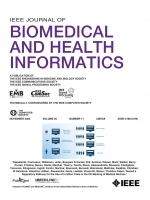The position paper has been published on the IEEE Journal of Biomedical and Health Informatics and obtained the front cover.

The paper “Toward a regulatory pathway for the use of in silico trials in the CE marking of medical devices” has been published on the IEEE Journal of Biomedical and Health Informatics and obtained the front cover. Authored by a team of researchers led by Prof. Pappalardo (University of Catania), the paper is a state-of-the-art review of the European regulatory pathway for in silico trials applied to medical devices.
The article discuss the need for the European regulatory system to establish a clear pathway for the use of in silico methodologies in the development, derisking, and regulatory assessment of new medical devices.
With the publication of the recent FDA guidelines and of the ASME VV-40 technical standard such a pathway already exists for the USA market, but companies that plan to sell in Europe are still operating in a confused scenario, where different notified bodies may have different opinions on the use of in silico methodologies, and on how to demonstrate their credibility.
As part of above mentioned in silico methodologies, patient-specific models can be used to support the medical decision about a specific patient. In this case, a patient-specific model is considered a medical device itself, and can be CE marked following a pathway known as "software as medical device". On the other side, when these technologies are used to evaluate the safety and efficacy of new medical products (drugs or other medical devices), they must undergo a regulatory process known as "qualification". While in the USA the FDA provides a regulatory pathway for the qualification of predictive models as device development tools, in Europe such pathway is not defined yet, primarily because of the lack of an appropriate harmonised standard, which is complex to develop.
The authors thus stress the importance of pursuing globally accepted standards that provide each regulator the necessary technical level upon which to evaluate the credibility of the in silico trials used in producing regulatory evidence, for example an International Organization for Standardization (ISO) standard that is recognised by FDA and harmonised in the EU regulatory system, to evaluate the credibility of in silico trials technologies.
The paper expresses the position of a wide group of experts, some working in the consortium of the In Silico World project in which the VPH Institute is involved, and some from the Pharmaceutical Strategy Task Force of the Avicenna Alliance, chaired by Prof Pappalardo (University of Catania) and Cécile De Coste (Alexion).
To find out about the In Silico World project, aiming at accelerating the uptake of modelling and simulation technologies used for the development and regulatory assessment of medicines and medical devices, visit www.insilico.world
To join the Avicenna Alliance Working Groups and Task Forces as a VPHi member, please contact manager@vph-institute.org
To learn more about this topic, read the full paper HERE.